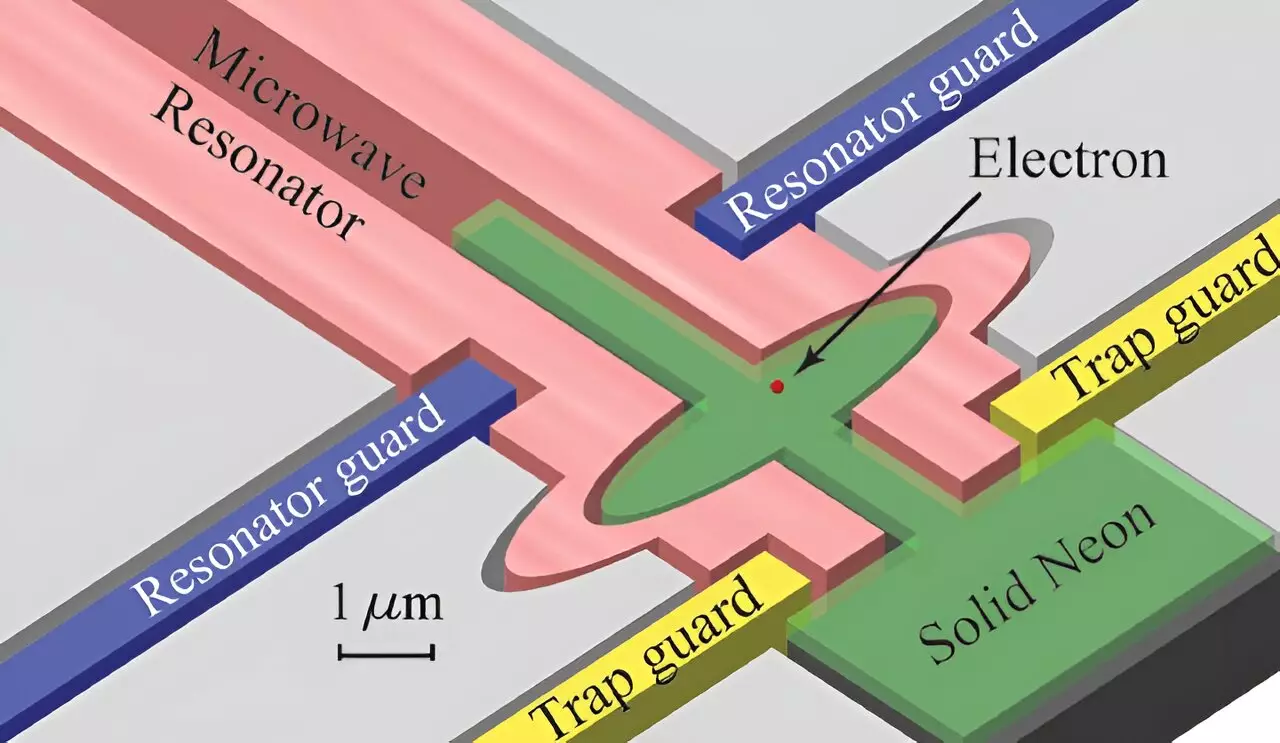Quantum computers are on the brink of revolutionizing the computing world due to their ability to conduct complex calculations in a fraction of the time it would take a traditional computer. One key element in the development of an efficient quantum computer is the quantum bit, or qubit, which must maintain coherence for a significant period of time to perform calculations effectively.
A groundbreaking study led by FAMU-FSU College of Engineering Professor Wei Guo sheds light on the potential of electron-on-solid-neon qubits for quantum computing applications. This innovative approach involves trapping a single electron on a solid neon surface, creating a qubit with unique properties that can enhance the functionality of quantum computers.
Guo’s research team uncovered fascinating insights into the quantum state of electrons on a solid neon surface, revealing the formation of ring-shaped quantum states due to small bumps on the surface. These quantum states play a crucial role in manipulating electrons for quantum computing purposes.
One of the key advantages of the electron-on-solid-neon qubit is its extended coherence time, which can reach up to 0.1 millisecond. This extended coherence time far surpasses traditional semiconductor-based and superconductor-based qubits, enabling more complex calculations and operations in quantum systems.
To further enhance the capabilities of electron-on-solid-neon qubits, researchers emphasize the importance of optimizing the qubit design. By creating smooth surfaces with strategically placed bumps of the right size, engineers can improve electron trapping efficiency and overall qubit performance.
Despite the promising advancements in electron-on-solid-neon qubits, there are still challenges to overcome in the manufacturing process. Researchers must carefully control neon injection temperatures and pressures to ensure the production of high-quality qubits for quantum computing applications.
The collaborative nature of quantum computing research is evident in Guo’s study, which involved contributions from researchers at the University of Notre Dame. This interdisciplinary approach is crucial for advancing the field of quantum computing and unlocking its full potential.
The development of electron-on-solid-neon qubits represents a significant step forward in the realm of quantum computing. By harnessing the unique properties of solid neon surfaces and ring-shaped quantum states, researchers can pave the way for more efficient and powerful quantum computers in the future. With ongoing optimization efforts and collaborative research endeavors, the possibilities for quantum computing are truly limitless.


Leave a Reply